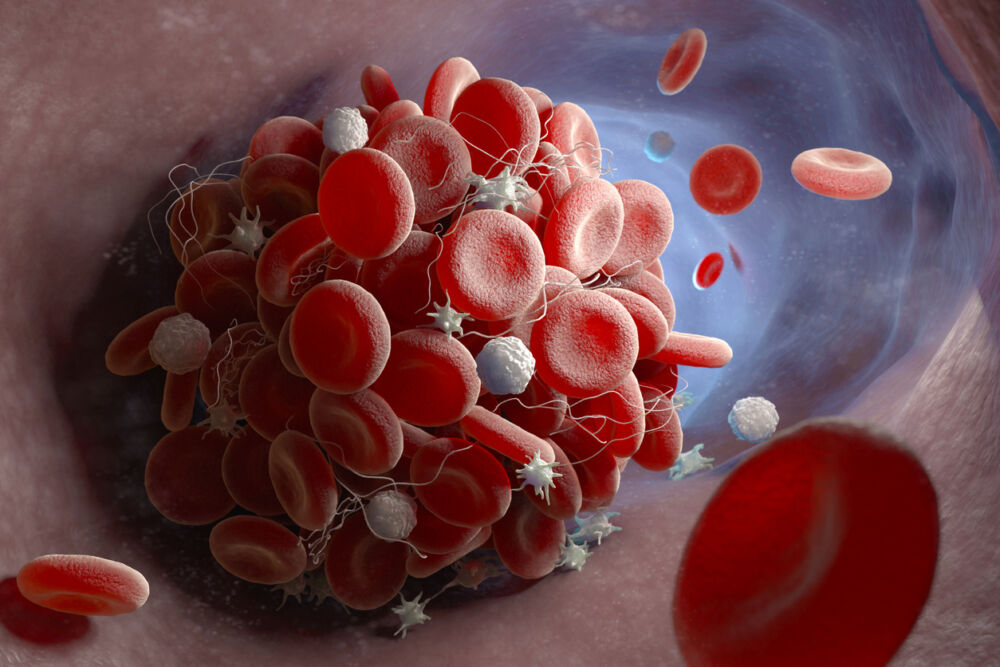
Understanding Your Blood Clot Risk
Knowing your risk level for deep vein thrombosis could save your life. Center for Vein Restoration’s Dr. Marlin Schul explains why.

Are you flying this holiday season? Remember to take care of your veins!
With the holidays fast approaching, your plans may include visiting friends and relatives in faraway places. As you book the plane ticket and pack your bags, you may not be thinking about your veins. But you should! The Centers for Disease Control and Prevention notes that traveling on flights of four hours or more raises the risk of a blood clot.
That’s because the immobility of long-distance air travel can lead to blood clots. Yet with some precautions and advice from a vein specialist at Center for Vein Restoration (CVR), you can reduce your clot risk and enjoy a safe, comfortable journey.
Why do plane rides present a risk for a clot? You’re not moving! When you're sitting in cramped quarters for long periods and not moving around, the blood in your legs doesn't circulate. Blood cells in the lower extremities thicken and cluster together, eventually forming a clot.
Another reason your blood thickens while flying is the change in altitude. While the cabin is pressurized to counter those shifts, your blood coagulates as the plane reaches its cruising level, raising the risk of a clot.
Blood clots usually dissolve on their own without any symptoms. But sometimes, they can present a medical emergency. Swelling in one leg, a sensation of warmth, and reddish skin indicate a blood clot or deep vein thrombosis (DVT) in the leg. If you experience these symptoms, report them to a physician as soon as possible to prevent a pulmonary embolism (PE). A PE occurs when the clot breaks away from the leg and lodges in the lung, causing shortness of breath, chest pain, dizziness, and coughing up blood. Because PE is potentially life-threatening, it requires immediate treatment at an ER.
But you can prevent a scary medical emergency with safeguards before your trip.
The vast majority of travelers get to their destinations without any health issues. Yet it’s always a good idea to ensure a safe, healthy flight before you board the plane by following these tips:
Know your risk factors. Talk to a vein specialist about your risks for blood clots. For example, women on hormone therapy stand a greater chance of developing a clot. Obesity, being over 40, and vein disease also increase the possibility of a clot. Clots tend to run in families, so if a close relative experienced a clot, you are at a higher risk of developing one. If you’ve been treated for a clot in the past, ask your doctor about blood thinners.
Move around. Airline cabins aren’t known for their spaciousness. But when possible, get up from your seat and stroll the aisle. If walking isn't possible, stand in the aisle and raise your toes and heels off the floor alternately, holding for a count of three.
While seated, a simple exercise such as flexing your ankles can get the blood pumping. You can also pull each knee to your chest, hold it for 15 seconds, and lower your leg.
Drink plenty of water. Water thins the blood, making it less likely for a clot to form. Avoid dehydrating liquids such as caffeinated beverages and alcohol.
Dress comfortably. No one wants to sit for long hours in uncomfortable clothing! But tight-fitting clothes, especially around the waist, can restrict circulation. Choose comfortable garments to make the trip pleasant and better for your veins.
Wear compression stockings. If there is one piece of clothing you should consider wearing, it’s a pair of compression stockings. These elastic stockings gently support circulation in the leg veins. During a long flight, they could lessen the chance of a clot.
Talk to a CVR doctor about your risk factors and any precautions you can take before you board. Our physicians are all board-certified vascular specialists who have helped countless patients diagnose and treat vein disease. Let us help you enjoy a safe, healthy journey without worrying about blood clots, varicose veins, and more.
Contact a CVR office today to schedule an appointment, or call 240-965-3915 to speak to a helpful Patient Services Representative.